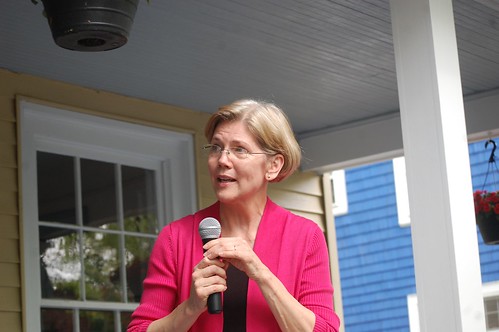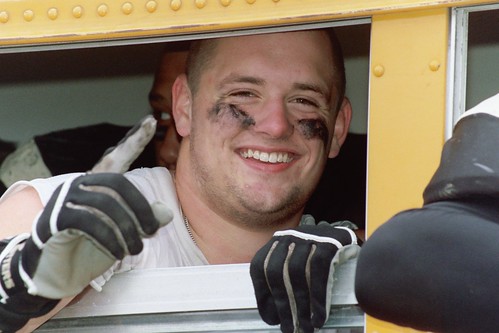I recently read this article from The Good Men Project – an awesome website, by the way. Andrew Smiler argues that we need to raise awareness about body image for boys and men, just as we have finally started to do with girls and women. Magazine ads featuring ripped guys with giant biceps and washboard abs are just as unrealistic as those with airbrushed photos of super-skinny women. So, he asks, why isn’t there a positive body image campaign for boys?
Well, the answer is pretty simple. Poor body image just isn’t an epidemic for boys like it is for girls. Something like 80% of 10-year-old girls have been on a diet. I remember thinking my thighs were fat when I was about nine. And the reason for this is – as a society, we still treat attractive women as if they’re more valuable human beings. This is not the case for men. Think about powerful female politicians. It’ not at all uncommon for media pundits to pass judgment on their clothes or appearances.
Remember the drama between Scott Brown and Elizabeth Warren in 2011? The two were competing for a Senate seat in Massachusetts. A reporter asked Warren how she paid for college, alluding to the fact that Brown had posed nude for Cosmo. Her answer was, “I kept my clothes on,” to which Brown snarkily replied, “Thank God.” This kind of crap doesn’t happen with guys.
It’s like those Dos Equis commercials. The most interesting man in the world looks like he’s in his 60’s – and he has gorgeous, 20-something girls hanging off him. Try to imagine a similar ad with a woman in her 60’s. It would never make it to the airwaves. Women are still given more respect when they’re considered physically attractive. So, not surprisingly, women and girls are more insecure about their appearances than boys.
That’s not to say a positive body image campaign for boys wouldn’t be beneficial. Men have eating disorders and get plastic surgery, too. I’m sure it’s not easy for boys who compare themselves to the uber-buff guys in magazine ads. And if we help boys to understand how unrealistic the idealized male body really is, it will help them see that the idealized female body is just as ridiculous. But the difference is, boys aren’t treated as lesser human beings if they don’t live up to those unattainable ideals. At least not nearly to the extent that girls are.
Media messages are very damaging to boys and men, though – just in a different way. With girls and women, it’s about their looks. With boys and men, it’s about their behavior and attitude. Magazines, TV and movies teach boys that real men are super macho – they don’t show their feelings, they dominate women, etc. Archetypes like drug dealers, mobsters, cowboys and loose-cannon cops are glorified in the media. And boys are told to internalize this picture of masculinity.
So, if we really want to help boys to accept and love themselves, there should absolutely be a campaign to counter the negative messages they’re being bombarded with. But it should focus on helping them feel comfortable with their masculinity while also embracing their emotions. It should teach boys about respecting women – which would in turn relieve some of the pressure girls feel to look perfect at all times. It should demonstrate to boys the importance of developing authentic relationships with all the people in their lives. It should tell boys that the hyper-masculine characters they see on TV aren’t realistic. Boys need support to feel confident and empowered just as much as girls – but if we’re going to be help them, we need to focus on the real problem.



